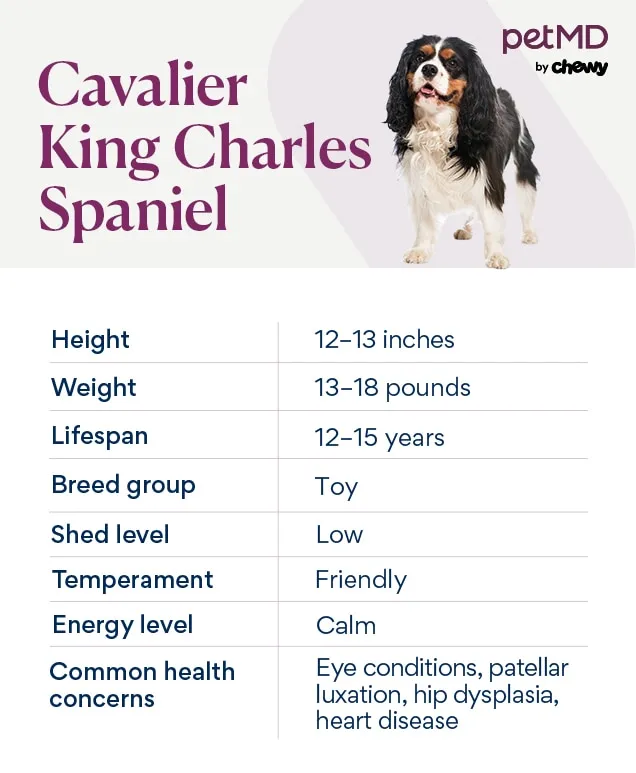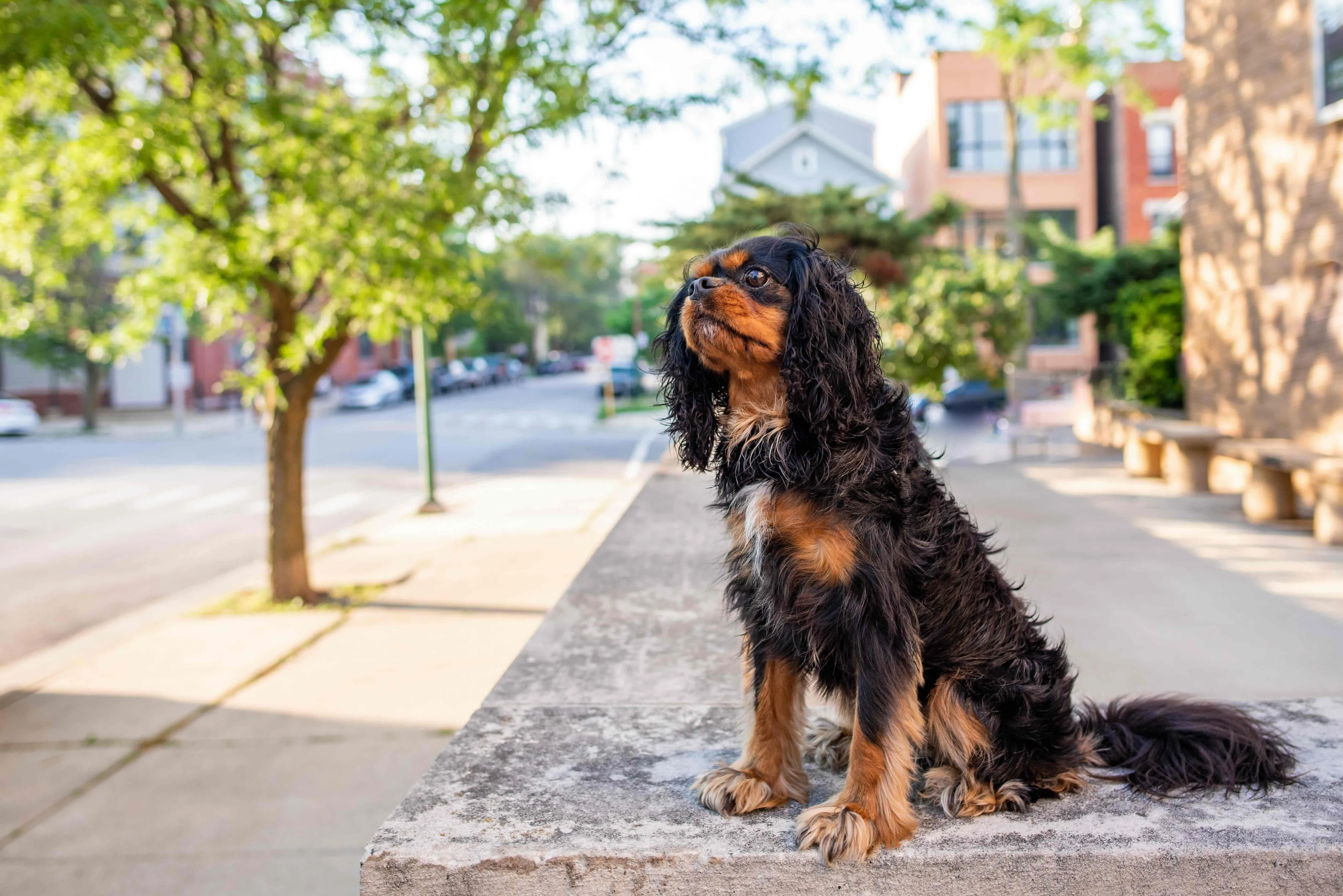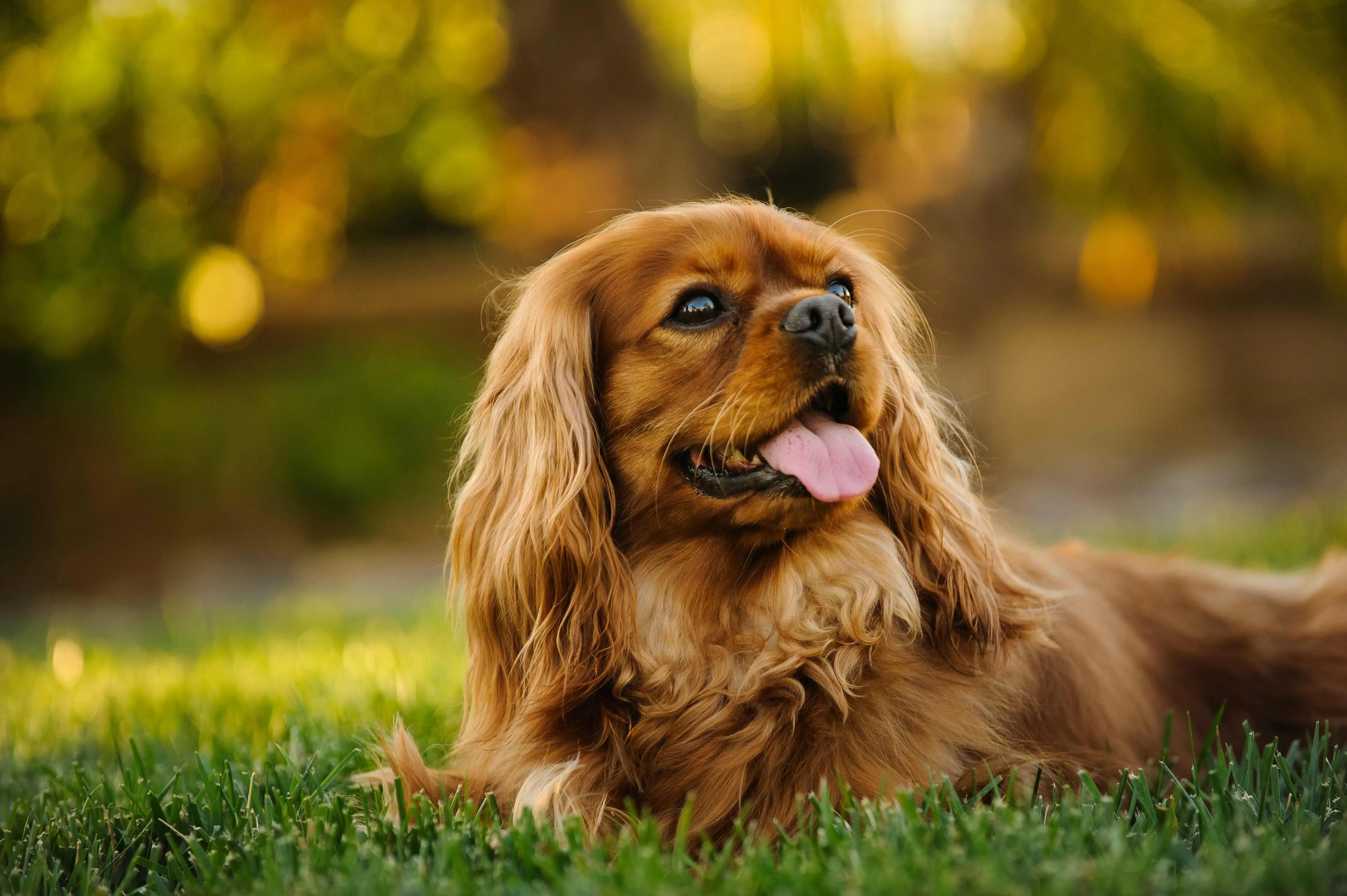The Cavalier King Charles Spaniel, a breed steeped in royal history, embodies a captivating blend of elegance and unwavering affection. Originally bred in the 17th century to warm the laps of British royalty, these charming dogs have transitioned from palace companions to beloved family pets. Their gentle nature and inherent desire to please make them an excellent choice, particularly for those new to dog ownership. Currently recognized as the 14th most popular dog breed by the American Kennel Club, the Cavalier King Charles Spaniel’s appeal lies not just in their aristocratic lineage but in their deeply ingrained behavioral traits that foster strong human-animal bonds.
The Cavalier King Charles Spaniel Personality and Temperament
At the heart of the Cavalier King Charles Spaniel’s charm is their undeniably friendly and loyal temperament. They are renowned for being fantastic family dogs, exhibiting remarkable tolerance and patience, especially around children and other pets. This makes them a harmonious addition to households with existing animal companions or young families. While their history as lap dogs is undeniable, it’s important to remember their sporting dog lineage. Cavaliers possess a moderate energy level, enjoying both gentle play and outdoor adventures. This duality means they can adapt seamlessly to active, athletic families as well as to those who lead a more sedentary lifestyle, provided their need for daily interaction and exercise is met.
 A Blenheim Cavalier King Charles Spaniel sitting attentively on a groomed lawn
A Blenheim Cavalier King Charles Spaniel sitting attentively on a groomed lawn
Understanding Cavalier King Charles Spaniel Behavior
The Cavalier King Charles Spaniel thrives on human interaction and companionship. They are exceptionally social dogs who form deep attachments to their families and can experience distress if left alone for extended periods. Their friendly disposition extends beyond their immediate family; they are generally welcoming to strangers, making them adaptable to various social settings. However, this strong desire to be with their humans also means they have a tendency to follow their owners closely, sometimes referred to as “Velcro dogs.”
A crucial aspect of Cavalier King Charles Spaniel Behavior to consider is their instinct to explore scents. While generally well-behaved, a captivating new smell can easily pique their interest and lead them to wander off. For this reason, it is strongly advised not to let your Cavalier off-leash in unsecured areas. To ensure their safety and prevent them from becoming lost or encountering hazardous situations, a securely fenced yard is highly recommended. This also provides them with a safe space to explore and play.
Effective Training for Cavalier King Charles Spaniels
The Cavalier King Charles Spaniel is a breed characterized by its intelligence and eagerness to please, making them a joy to train. They excel in various canine disciplines, including obedience, agility, and AKC Rally®. The foundation for a well-adjusted Cavalier begins early. It is essential to initiate training and socialization for your Cavalier King Charles Spaniel puppy as soon as they join your family.
 A black and tan Cavalier King Charles Spaniel sitting calmly on a city sidewalk
A black and tan Cavalier King Charles Spaniel sitting calmly on a city sidewalk
Proper socialization during puppyhood is paramount. This process helps your Cavalier develop into a confident and comfortable adult, capable of navigating new environments, sounds, and interactions with ease. When engaging in training sessions, always employ positive reinforcement methods. This approach, which includes rewards, praise, and encouragement, not only strengthens the bond between you and your dog but also makes the learning process enjoyable and effective. Consistency and patience are key to unlocking your Cavalier’s full potential.
Engaging Activities for Cavalier King Charles Spaniels
To foster a happy and stimulated Cavalier, incorporating a variety of activities into their routine is beneficial. These can include:
- Obedience Classes: Reinforce basic commands and introduce new skills in a structured environment.
- Agility Training: Channels their energy and intelligence into an exciting physical and mental challenge.
- Flyball: A fast-paced team sport that combines chasing and retrieving.
- Rally: A dog sport that allows handlers to guide their dogs through a course of predetermined stations.
- Hiking: Explore nature trails, providing ample exercise and sensory enrichment.
- Neighborhood Walks: Daily strolls not only provide exercise but also opportunities for exploration and socialization.
- Backyard Playtime: Simple games of fetch or tug-of-war can be highly engaging.
Cavalier King Charles Spaniel Grooming Guide
The Cavalier King Charles Spaniel’s elegant appearance is complemented by their manageable grooming needs. Their long, silky coat requires regular attention to maintain its shine and prevent tangles.
 A Ruby Cavalier King Charles Spaniel resting contentedly in the grass
A Ruby Cavalier King Charles Spaniel resting contentedly in the grass
Coat Care
Weekly brushing with a bristle or pin brush is essential for preventing matting and keeping their coat healthy. While Cavaliers don’t shed excessively, regular brushing helps minimize loose fur and distributes natural oils, promoting a lustrous sheen. Professional grooming a few times a year can further assist in maintaining their coat, especially if you opt for a longer style.
Skin and Bathing
Bathing your Cavalier King Charles Spaniel at least once or twice a month is recommended to keep their skin healthy and free from irritants. Using a mild, soap-free shampoo, ideally one with aloe or oatmeal, will help maintain skin health and coat vitality.
Eye and Ear Care
Due to their facial structure and fur color, Cavaliers can be prone to tear staining around their eyes. Gently cleaning the area with a warm washcloth or a vet-recommended tear stain remover can help prevent this. Regular grooming sessions provide an excellent opportunity to check for any changes in your dog’s eyes.
Cavaliers’ long earflaps can also be susceptible to ear infections. Weekly checks for redness, debris, or odor are crucial. Using a mild ear cleaner can help keep their ear canals clean and dry, reducing the risk of infection. Be aware that scratching and head shaking due to infection can sometimes lead to ear hematomas.
Considerations for Pet Parents
The Cavalier King Charles Spaniel is a highly adaptable breed, making them suitable for a wide range of living situations and lifestyles. They are content in larger homes or smaller apartments, requiring only a moderate amount of daily exercise, typically two 20- to 30-minute walks. Their gentle, playful nature makes them excellent companions for children, and their friendly disposition means they usually get along well with other dogs and cats.
Despite their small stature, Cavaliers possess a surprising amount of energy and enjoy interactive play. Providing them with appropriate toys and engaging activities will contribute to their overall well-being. Their affectionate nature means they thrive on being close to their families, whether that’s curled up on the couch or participating in family activities.
Cavalier King Charles Spaniel FAQs
Is a Cavalier King Charles Spaniel a good family dog?
Yes, Cavalier King Charles Spaniels are widely regarded as excellent family dogs due to their tolerant, patient, and affectionate nature, making them great with children, cats, and other dogs.
Are Cavalier King Charles Spaniels smart dogs?
Indeed, Cavalier King Charles Spaniels are considered bright and intelligent dogs. Their eagerness to please often makes them highly trainable.
How much does a Cavalier King Charles Spaniel cost?
The price for a Cavalier King Charles Spaniel puppy can range from $1,000 to $2,500, influenced by factors such as breeder reputation and lineage. Adoption from breed-specific rescues is also an option.
Is the Cavalier King Charles Spaniel a good choice for an apartment?
Absolutely. Cavalier King Charles Spaniels are well-suited for apartment living thanks to their adaptable temperament and moderate exercise needs.
Do Cavalier King Charles Spaniels shed?
Yes, Cavalier King Charles Spaniels do shed moderately throughout the year. They are not typically considered heavy shedders, and regular grooming helps manage this.
Should I buy a teacup Cavalier King Charles Spaniel?
It is generally advised to avoid “teacup” varieties of any breed. This designation often indicates that the dog was bred to an extreme size, potentially compromising their health and well-being. Reputable breeders prioritize the health of their dogs over achieving an unusually small size.
Sources:
